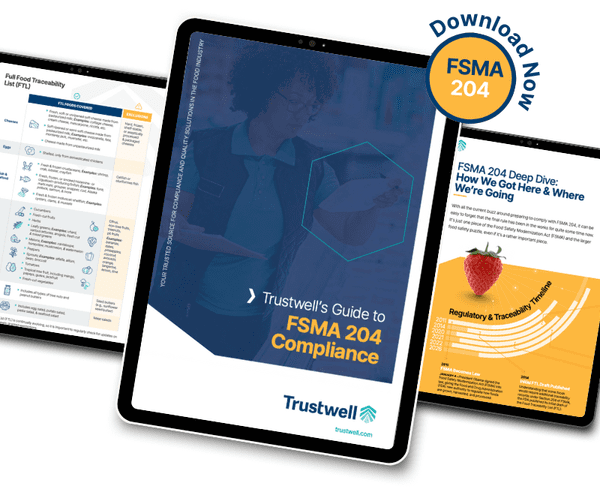A Fresh Take on Traceability with Del Monte: How FSMA 204 is Reshaping Complex, Global Supply Chains
FSMA 204 Is Driving a New Era of Supply Chain Transparency—Are You Ready?
During this session, featuring Takashi Nakamura, VP of Global Food Safety at Fresh Del Monte, we explore strategies for managing Key Data Elements (KDEs) and Critical Tracking Events (CTEs) under FSMA 204. We discuss the importance of involving suppliers early to build scalable traceability programs, and share how Del Monte structures its internal processes to align with FDA requirements. We also highlight how purpose-built tools can support cross-functional collaboration and help maintain compliance across the supply chain.
FSMA 204 & Supply Chain Traceability: Lead With Confidence
Critical Tracking Events (CTEs) & Key Data Elements (KDEs)
Why CTEs & KDEs Drive Compliance
Tracking the right data at the right points in your supply chain is at the heart of FSMA 204. Del Monte’s approach to identifying Food Traceability List (FTL) items and managing CTEs and KDEs shows how this data can go beyond compliance—helping businesses pinpoint risks faster, reduce recall times, and ensure product quality every step of the way.
Supply Chain Digitization
Why Digital Tools Power Success
Manual processes can slow down traceability efforts and increase the risk of errors. Digital traceability platforms streamline data capture, automate recordkeeping, and offer real-time visibility into your supply chain. Businesses adopting these tools can reduce compliance burdens, improve audit readiness, and enhance consumer confidence in their products.
Supplier Collaboration
Why Strong Partnerships Reduce Risk
Compliance doesn’t happen in isolation. FSMA 204 success requires suppliers, manufacturers, and retailers to work together. Clear communication and shared traceability data create stronger partnerships, minimize delays, and help businesses proactively manage quality issues—turning compliance into a driver for supply chain performance.


